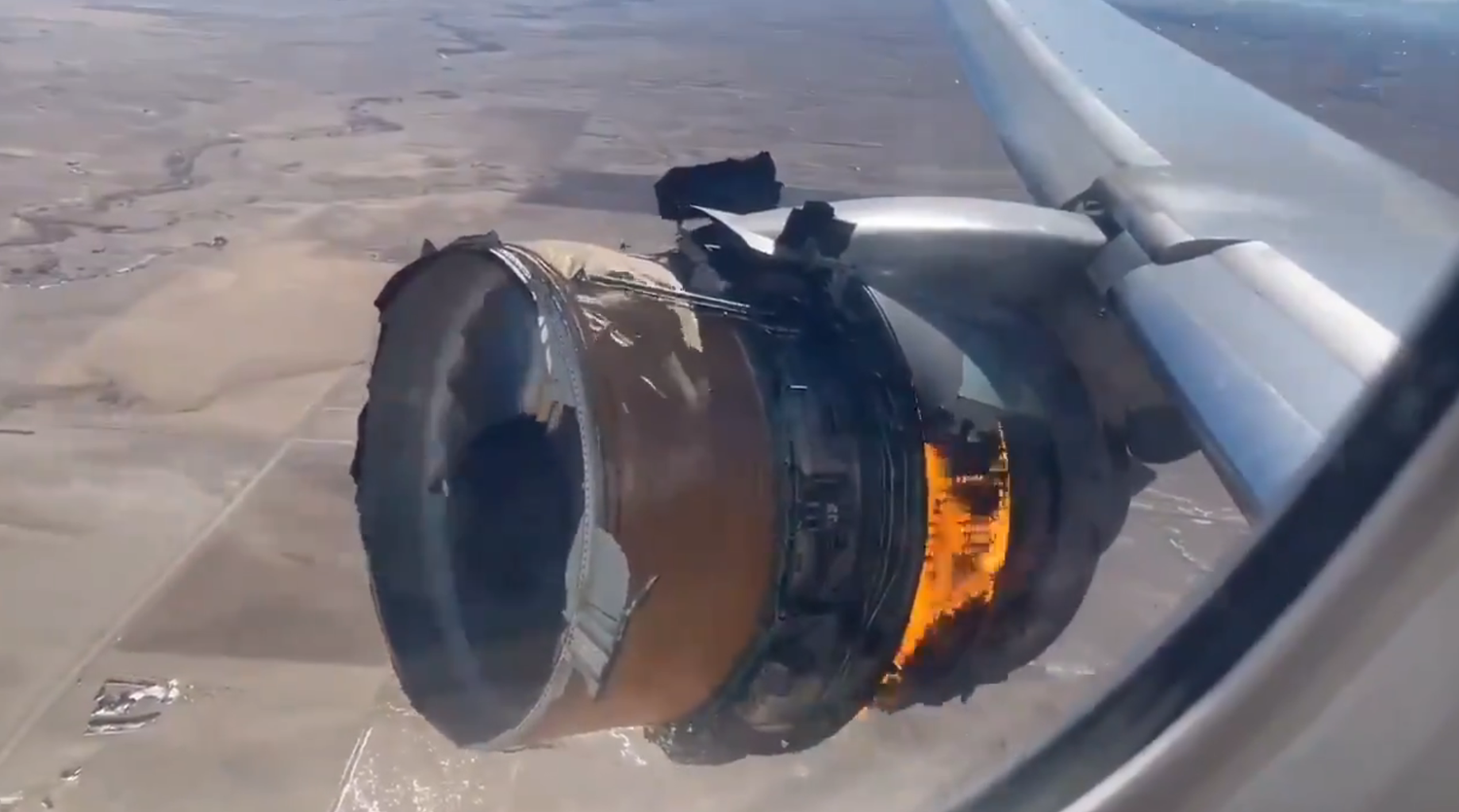NTSB Finalizes Investigation on United’s Boeing 777-200 Engine Failure Incident, Points to Inadequate Inspections
On September 7, the National Transportation Safety Board (NTSB) of the United States issued the final report on the investigation into the engine failure incident involving a United Airlines Boeing 777-200, which took place on February 20, 2021, shortly after takeoff.
The Incident
The incident unfolded as flight 328 was ascending past 12,500 feet approximately 5 minutes after departing from Denver International Airport (DEN). The right engine, a Pratt & Whitney PW4077, experienced a total fan blade separation, a phenomenon referred to as «fan blade out» (FBO).
The failure culminated in the subsequent detachment of several engine components and a fire outbreak within the engine. The crew declared an emergency, managing to land the aircraft safely at the departure airport about 24 minutes after takeoff. Remarkably, no passengers or crew members were injured, and no ground injuries were reported, although debris from the engine damaged a vehicle and a residence.

Investigation Findings
According to the NTSB, the likely cause of the incident was indeed the material fatigue failure of the right engine’s fan blade. Contributing factors included inadequate inspection of the blades, which failed to identify early signs of cracking, and insufficient inspection intervals by the manufacturer, which allowed the low-level cracks to propagate undetected until ultimately resulting in a fatigue failure.



Also, the severity of the engine damage and the ensuing fire were escalated by two critical failures. Firstly, the design and testing of the engine inlet failed to ensure proper energy dissipation, facilitating more extensive damage during a «fan blade out» event in flight.
Furthermore, the fan blade fracture led to the failure of the «K» flange, allowing hot ignition gases to infiltrate the nacelle. This caused damage to essential components and enabled the fire to spread to areas where it could not be contained, such as the reversers. The inability to address these vulnerabilities allowed the fire to escalate, heightening the gravity of the situation.
Subsequent Actions
In the wake of the incident, the Federal Aviation Administration (FAA) mandated immediate inspections of 777 aircraft equipped with Pratt & Whitney 4000 engines before further flights, grounding the planes for over a year.
Following extensive collaboration with the NTSB, FAA, and Pratt & Whitney, United Airlines expressed satisfaction in reintegrating these aircraft into their fleet. Boeing has noted developments in design modifications to enhance the structural integrity of the engine inlet and cowling.
As of January, 17 confirmed cracked fan blades have been found since the first identification in December 2004. United is the sole U.S. operator of 777s powered by the PW4000 engine, boasting 52 of these planes as of 2022.


Comentarios
Para comentar, debés estar registrado
Por favor, iniciá sesión